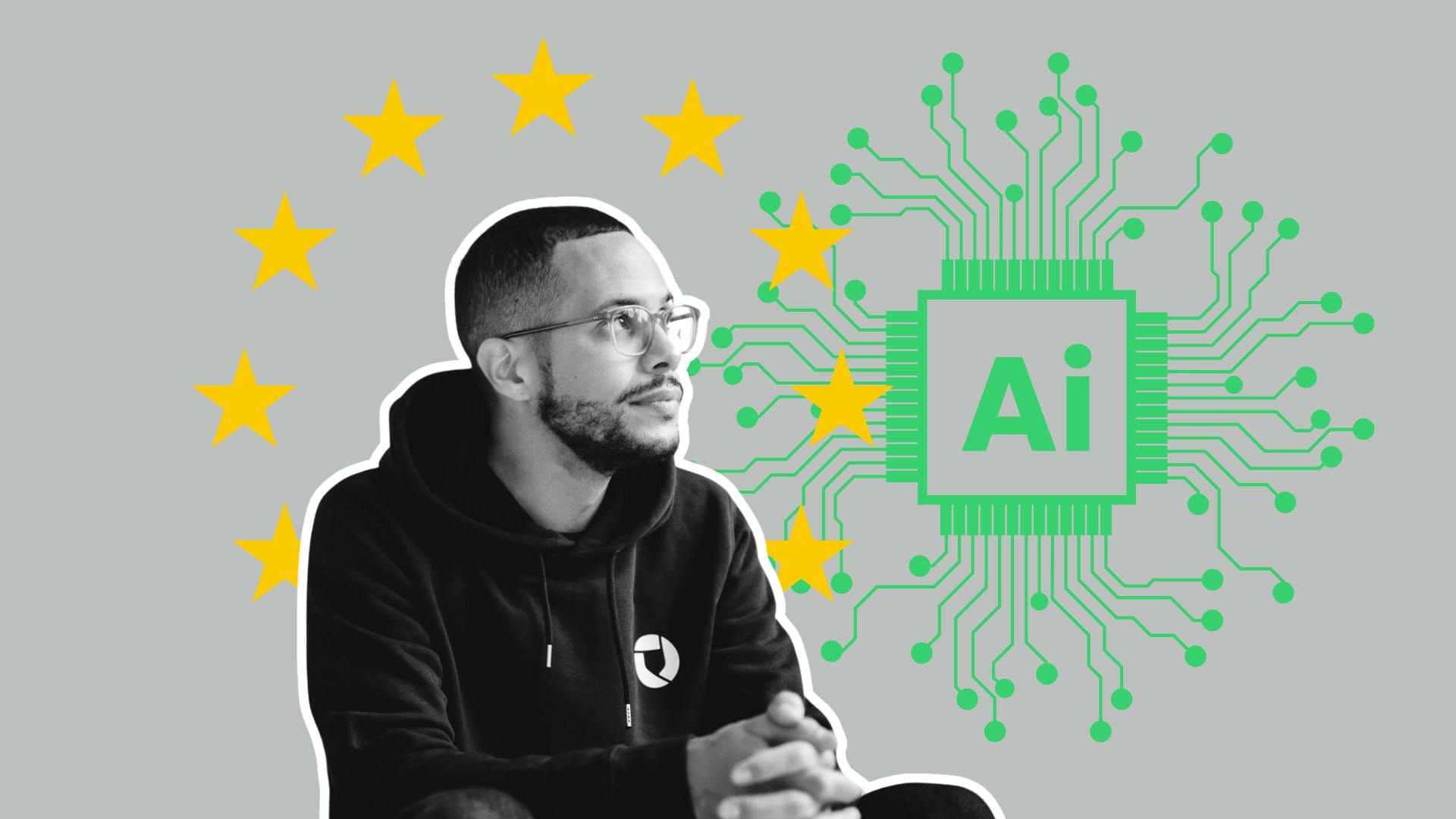Blog post
—
September 11, 2024
Why The AI Act Will Choke Innovation in Europe—and My Proposal To Combat This

Written by Buddywise CEO & Co-founder Lamin Faye
AI in Europe stands at a pivotal crossroads. Brussels has fired a warning shot to AI companies across Europe with its much-talked-about AI Act, sending ripples of concern out across Europe's startup community.
The AI Act is a 140+ page document passed into legislation this August. It is designed to guide companies through an era of technological innovation while safeguarding society. It addresses the potential dangers of unregulated AI, emphasising the need to protect citizens’ rights and maintain societal integrity as this autonomous technology evolves.
In the EU, where innovation often moves at a slower pace than in the US (only 1 of the 50 global startups valued at $10 billion or more is based in the EU, compared to 30 in the US), founders leading AI-driven companies now face even greater challenges. They must navigate an open risk model established by the Act, determining their own path forward.

Risks are ranked from highest to lowest within a pyramid-based system, and failure to comply can result in stiff financial penalties. Examples of high-risk systems are those related to the operation of critical infrastructure, biometric processes and credit scoring systems.
This is a prime example of a red tape machine in full swing. Unfortunately, it has baffled many CEOs and founders, including myself, who have been left scratching their heads about how to best implement such extensive ambiguous regulations. The legislation has the potential to regulate innovative companies out of existence by spreading uncertainty and hesitation. If Europe, as a tech ecosystem, wants to lead in AI, it must be part of the conversation and not just act as a regulatory force.
The Next GDPR Crisis?
Between 2016 and 2018, as the GDPR act was being enforced, I witnessed firsthand how the regulation unsettled the business community. Many companies overreacted, with some even resorting to daily email deletions. A wave of anxiety and uncertainty spread as businesses feared stiff penalties, leading them to spend vast amounts of money and time navigating the complex compliance landscape.
The AI Act could do the same and lead not just to a talent drain, making it harder for us tech companies to attract skilled professionals if the environment is overregulated. But most importantly, it could deter or slow down founders from using or developing AI to solve some of the most pressing societal challenges, from healthcare to climate change.
On the other side of the pond, The US has already responded unfavourably to The AI Act; Apple announced that these regulations might prevent it from offering new AI features to EU customers, while Meta has halted plans to launch its latest AI model in the EU, citing the “unpredictable” behaviour of regulators as a deterrent.
Yes, it is essential to have guardrails. I don't disagree with that, and Europe should be proud of fronting this initiative.
However, there is real concern that excessive top-down regulation could drive startups to establish themselves in more lenient regions and only return to Europe once they are large enough to comply with stringent regulations. That would be catastrophic for the area. In fact, I worry that startup companies at the seed or pre-seed level won't even get to the starting line to compete within such an oppressive environment.
The Solution: Certification
While the EU shares cultural ties with the US, our values differ significantly. We take a much more proactive stance on regulating technology than our counterparts. You only have to look at how early we started regulating the issue of privacy in the EU with the GDPR act; in contrast, the US possesses a more fragmented and sector-specific approach to privacy.
This doesn’t mean we can’t compete. We should have a moral compass, but we should also provide more explicit guidelines for founders operating within that compass, ideally through a certification-styled system. Although the full legislation will not come into effect for nearly three years, the clock has already started ticking, and the immediate uncertainty is a pressing issue for founders.
I propose establishing a certification for AI companies, which would allow smaller firms to adhere to established rules and help them navigate the compliance landscape more effectively.
A proactive certification approach could enable Europe to compete globally while maintaining ethical standards. This would allow EU-based companies to move quickly while addressing buyer uncertainties through a clear compliance framework.
Here are two things that would help:
1. Advocating for a more collaborative approach:
Rather than imposing top-down regulations, the EU should engage in continuous dialogue with tech companies to develop a rigorous and practical certification system. This collaboration would help ensure that real-world challenges inform regulations and that companies have a say in shaping the rules they must follow.
2. Incentivizing Compliance through Certification:
Propose incentives for companies that achieve certification, such as access to funding, tax breaks, or faster approval processes for new products. By rewarding companies that meet the standards, the EU can encourage broader adoption of ethical practices. This is not just a suggestion; it's a call to action.
Consider ethical certification systems like B-Corp, Energy Star, or Fairtrade, which enable companies to identify responsible suppliers who comply with ethical and regulatory standards. These certifications allow businesses to demonstrate their adherence and market their compliance as a competitive advantage.
Why not apply a similar approach to AI-driven companies rather than leaving a regulatory vacuum for founders to navigate?
Brussels's legacy shouldn’t be about innovating regulation but enabling innovation to allow the next European Meta or Apple to blossom. A one-size-fits-all approach could be detrimental.
Stay up to date
Sign up to our newsletter and get our news straight to your inbox